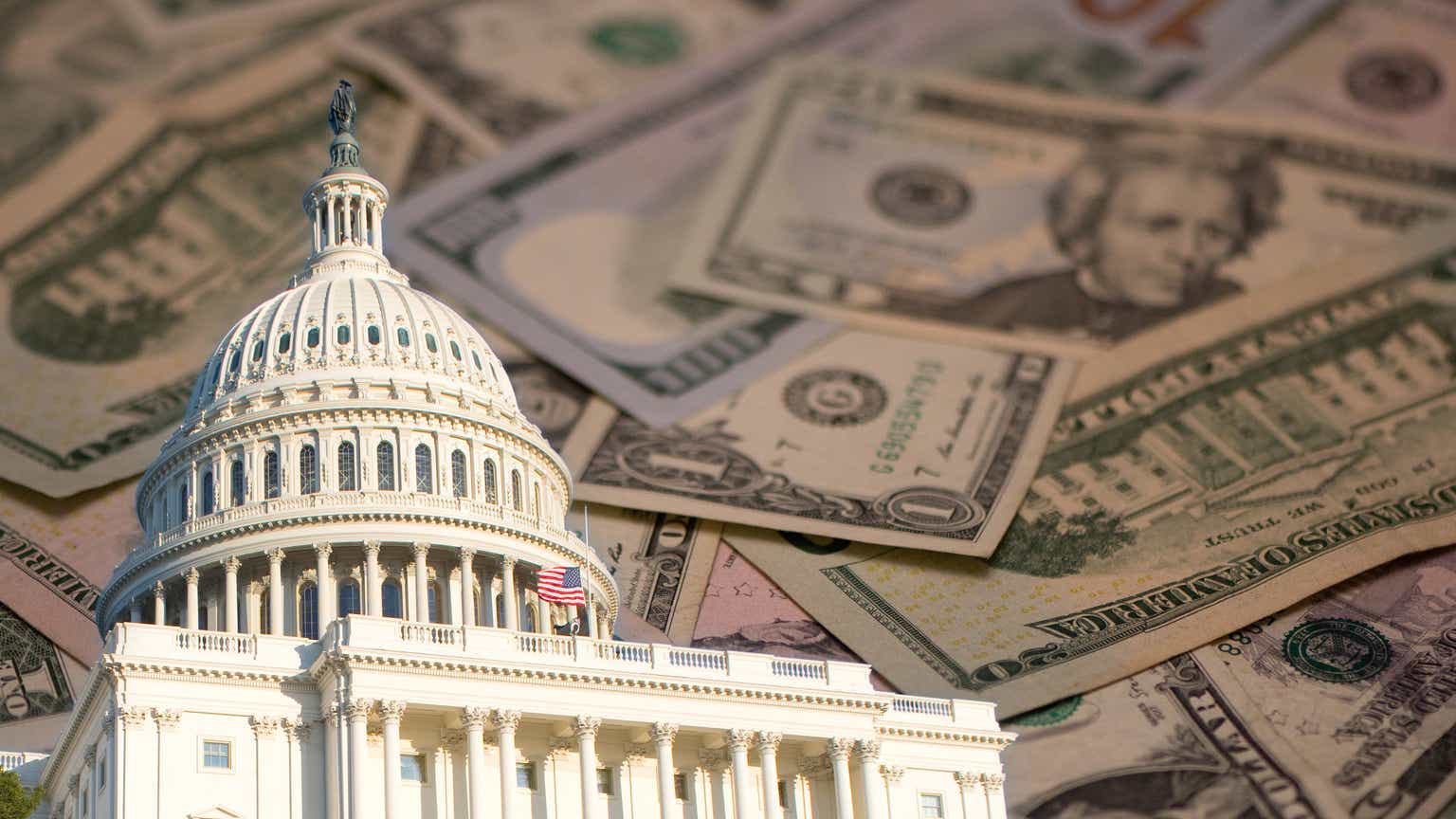Goldman Sachs analysts predict that the U.S. government is "more likely than not" to shut down later this year due to spending disagreements, which could temporarily impact economic growth by reducing it by 0.15-0.2 percentage points per week, with past shutdowns having minimal impact on equity markets.
Concerns of a stock market crash are growing as economists await the release of the second-quarter GDP report, which could provide insight into the impact of the Federal Reserve's rate-hike campaign and future monetary policy changes. The report may have a significant effect on equity markets, which have been sensitive to economic data releases this year.
The potential government shutdown threatens to deprive the Federal Reserve of crucial data on the labor market and inflation, which could hinder its ability to make informed decisions about the economy and interest rates.
Despite rising gas prices, Americans remain optimistic about inflation easing, as expectations for inflation rates in the year ahead have fallen to the lowest level since March 2021, according to a consumer sentiment survey from the University of Michigan. However, concerns are surfacing about a potential government shutdown, which could dampen consumer views on the economy.
Treasury Secretary Janet Yellen believes that there are no signs of an economic downturn, but warns that a government shutdown could undermine economic momentum.
The White House warns that a government shutdown at the end of the month could have damaging consequences for the economy, national security, and the American public.
US stock futures rise as investors await Fed decision on rates; US debt rises to $33 trillion as government shutdown looms; Federal Reserve expected to pause rate hikes; Impact of government shutdown, autoworkers strike, and rising oil prices on the economy; Biden reshapes the Federal Reserve.
A full government shutdown in the US is likely at the end of the month, which could impact the Federal Reserve's decision to raise interest rates in November, according to analysts at PIMCO.
Investors shouldn't worry about a government shutdown as it is unlikely to have a significant impact on the markets.
The US government faces a potential shutdown if Congress fails to agree on funding past September 30, which would be the first shutdown since December 2018 and could result in a longer standoff between parties.
Millions of federal employees and military personnel face the prospect of a government shutdown, which would result in financial hardships for American families, disruptions in services, and potential harm to the economy.
The federal government is likely to face a shutdown that will affect various services, disrupt workers' pay, and create political turmoil as Republicans demand deep spending cuts.
The impending federal shutdown, combined with other economic challenges such as rising gas prices, student loan payments, and reduced pandemic savings, is expected to strain American households and potentially weaken economic growth in the last quarter of the year.
A government shutdown on October 1 is likely, but it is not expected to have a significant impact on financial markets or cause an economic recession.
The publication of major U.S. economic data, including employment and inflation reports, will be suspended indefinitely if the federal government shuts down due to lack of funding, leaving policymakers, investors, and businesses in the dark for key decision-making.
A U.S. government shutdown would negatively impact its credit assessment and highlight the weakness of its institutional and governance strength compared to other top-rated governments, according to Moody's, although the economic impact would likely be short-lived.
The impending government shutdown may have an impact on the financial markets, according to Kristina Hooper, Chief Global Market Strategist at Invesco.
A brief government shutdown is unlikely to significantly slow down the economy, but a prolonged shutdown could hurt growth and potentially impact President Biden's re-election prospects.
A government shutdown in the U.S. could cause significant disruptions in the stock and bond markets, with the Securities and Exchange Commission being forced to furlough most of its staff and leaving the market oversight at a "skeletal" crew level.
There is a 90% chance of a government shutdown, according to Goldman Sachs, as the deadline looms and little progress has been made in negotiations.
A government shutdown would severely impact the U.S. Securities and Exchange Commission's ability to approve IPOs and respond to market turmoil, according to its chair, Gary Gensler.
The U.S. government is facing a potential shutdown if Congress does not resolve a deadlock by this weekend, which would result in furloughs or unpaid work for federal workers and military employees, but experts believe the impact on the economy and stock market will be short-lived.
A potential US government shutdown could disrupt the release of important economic data, leading to market volatility and forcing investors to rely on alternative sources of information, potentially impacting monetary policy decisions and delaying key reports such as the October 6 payroll report.
U.S. Treasury Secretary Janet Yellen warns that a potential government shutdown would harm economic progress, impacting key programs for small businesses and children and delaying infrastructure improvements.
A potential government shutdown in the US may lead to a delay or absence of the September consumer-price index report, which would complicate decisions for financial markets and the Federal Reserve.
Summary: The U.S. stock market had a bad quarter, with all indexes falling, while the World Bank lowered its growth forecast for developing economies in East Asia and the Pacific, and China's demand for commodities continues to grow despite the downgrade. Additionally, a last-minute spending bill was passed to avoid a government shutdown, and this week's focus will be on the labor market.
Investors will be closely watching market reactions to a late deal to avert a government shutdown, as well as key data on the labor market this week, while concerns about higher interest rates and the impact on the economy weigh on stock futures.
The US stock market is experiencing back-to-back down months, while facing challenges such as an autoworkers strike, potential government shutdown, and concerns about inflation and interest rates.
